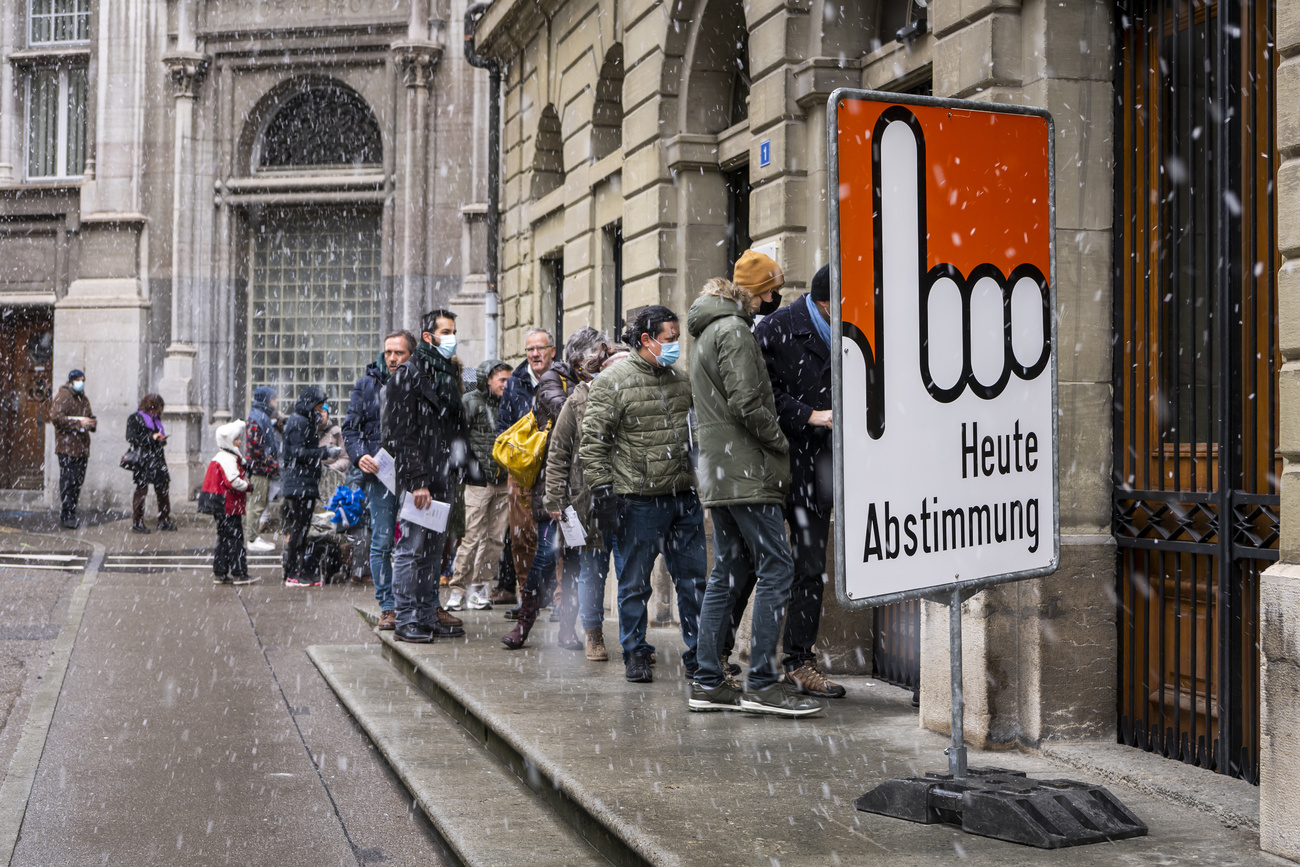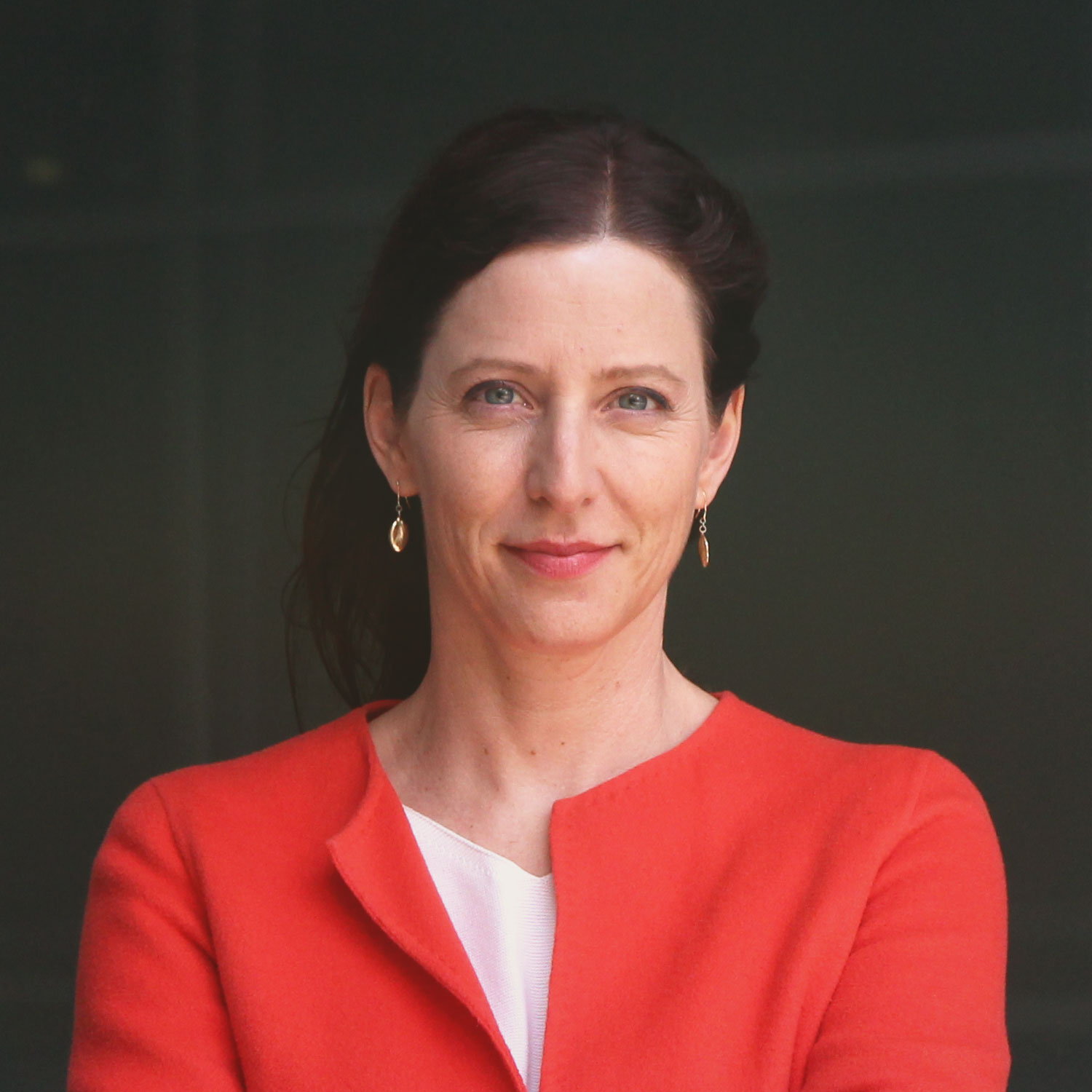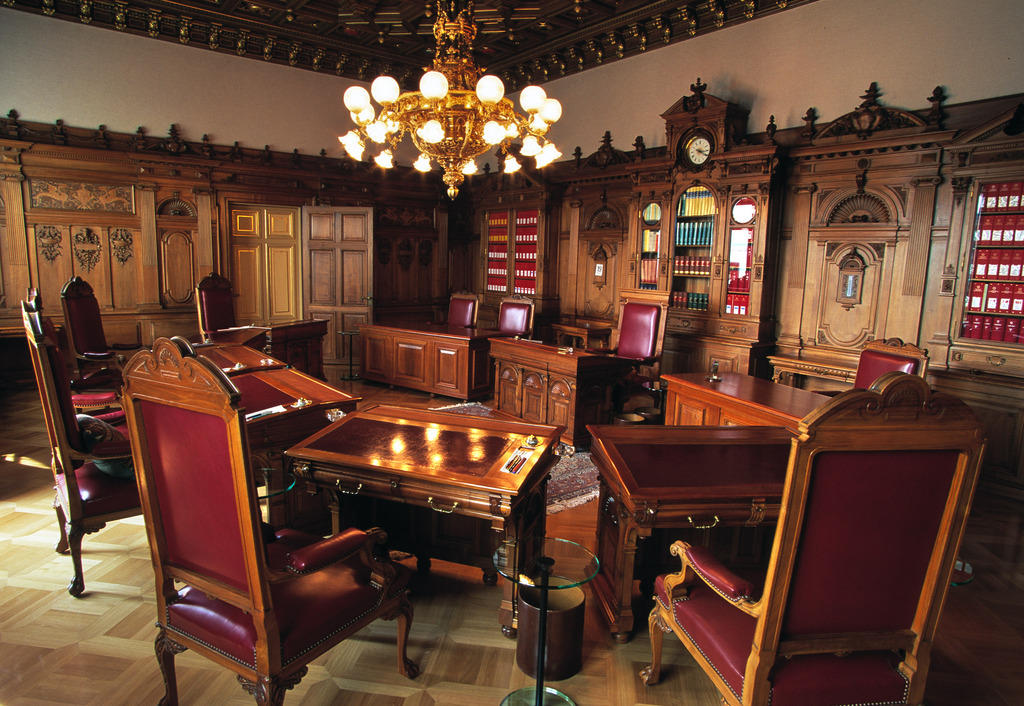
Explainer: Is there no political opposition in Switzerland?

In Switzerland the major parties are always part of the government. So who keeps a check on the cabinet ministers? Political scientist Silja Häusermann explains how the opposition works.
On December 13 the Swiss parliament will elect a new minister to the seven-member executive body, the Federal Council. It’s almost definitely going to be a man. His party is even more certain. This is because, for over 60 years, Switzerland’s four main parties have formed the government almost without interruption. They cooperate as ministers despite widely differing worldviews and opinions.

More
How Swiss direct democracy works
Four-fifths of parliamentarians in the House of Representatives belong to a party that is in government. In the traditional sense, therefore, the opposition in Switzerland is very small. The largest party in parliament without a seat in government is currently the Green Party, which accounts for nearly 10% of voters. From a historical perspective, by Swiss standards, the opposition is now actually quite large.
Is the government all-powerful?
There are of course extra-parliamentary alliances, which can mobilise enough supporters to bring about referendums (such as the opponents of pandemic protection measures in recent years), but at first glance Switzerland appears to have one of the most dominant governments of all democracies.

More
Why the Swiss have voted three times on the Covid-19 law
“No, the government in Switzerland is not dominant,” asserts Silja Häusermann, professor of Swiss politics at the University of Zurich. This is because the Swiss government has no means of demanding parliamentary approval. “It cannot threaten parliament with new elections, as a regular prime minister might do.” The government must therefore rely on its powers of persuasion vis-à-vis parliament.
Furthermore, as the government makes its decisions and proposals jointly, less pressure can be brought to bear on parliamentarians. The government works “as a collegial body”, so its proposals “cannot be clearly assigned to any one party”, Häusermann explains.

At the weekly government meeting, the seven Federal Councillors decide on a compromise that is supported by at least four members. In most cases, the members of government then represent this consensus to the outside world without demur. Parliamentarians from the governing parties therefore do not necessarily feel bound to a government bill, even if it falls within the remit of a minister from their own party.
Challenging the government through direct democracy
No other country in the world holds popular votes as often as Switzerland. Swiss citizens can regularly express their opinion or simply their dissatisfaction. They can challenge laws that have been passed by parliament or the government by means of a referendum. They can propose amendments to the constitution through a people’s initiative. These mechanisms “increase the pressure to seek a broad compromise”, Häusermann says.
At the same time, she adds, “every referendum is ultimately the expression of a failed consensus-building process”.
Last year, for instance, the left-wing Social Democratic Party launched a referendum against the pension reform plans of one of its two Federal Councillors, Interior Minister Alain Berset. This is quite normal in Switzerland: the party opposes a bill, although its minister is the public face of the proposed legislation.
“The Swiss People’s Party did the same on climate policy, when it stood against its own Federal Councillor,” Häusermann said, explaining that the Social Democrats, as the most left-wing government party, and the People’s Party, as the most right-wing government party, being “at opposite poles of the political spectrum, […] do not feel bound by government bills and can diverge from them without negative repercussions”.
In Switzerland, political polarisation thus occurs to a significant extent between the parties that make up the government – a polarisation which, as Häusermann points out, “of course also manifests itself rhetorically”. The most vehement form of this rhetorical polarisation was seen during the pandemic, when representatives of the People’s Party, which has two out of the seven members of government, called the Swiss health minister a “dictator”. The executive committee of the Social Democratic Party also regularly criticises the government.
There is thus a certain concurrency between governing responsibility and oppositional behaviour in Switzerland. This is most clearly reflected in the regular popular votes. With each vote, the parties form new alliances.
Häusermann refers to the Bernese political scientist Adrian Vatter, who has shown how the governing parties are increasingly at odds in individual votes. Whereas in the late 1970s the four Federal Council parties recommended the same opinion in almost 80% of votes, today this figure is close to zero.
“Because of this polarisation”, there are today “hardly any parliamentary bills” where either the Social Democrats or the People’s Party do not diverge from the government’s position. “De facto, the Social Democrats and the People’s Party constitute the main opposition force in Switzerland’s very divided party landscape,” Häusermann concludes.
Surprising as it may sound, the governing parties are thus an important part of the opposition in Switzerland.
Edited by David Eugster. Translated from German by Julia Bassam.

More
When political opposites govern together

In compliance with the JTI standards
More: SWI swissinfo.ch certified by the Journalism Trust Initiative




























You can find an overview of ongoing debates with our journalists here . Please join us!
If you want to start a conversation about a topic raised in this article or want to report factual errors, email us at english@swissinfo.ch.